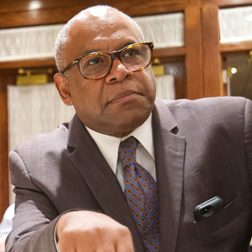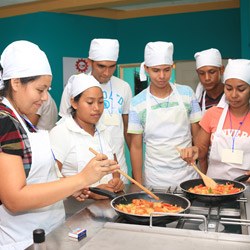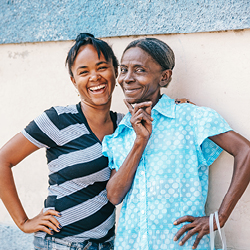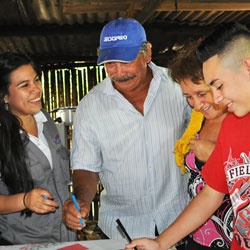[vc_row][vc_column][vc_column_text]
Innovations from Tunis to Tegucigalpa shared at LA Gang Prevention Conference
[/vc_column_text][/vc_column][/vc_row][vc_row][vc_column width=”2/3″][vc_column_text]Drawing from its innovative place-based public health approach to violence prevention in Central America, the Caribbean and North Africa, Creative’s experts shared insights and best practice at the annual Los Angeles Gang Prevention and Intervention Conference May 1 and 2. Check here for updates as panelists discuss evidence-based tools for risk assessment, family-centered interventions and connections between violence prevention in different regions.
Follow Creative
Check out highlights from the Los Angeles Gang Prevention and Intervention Conference on this Special Report page, as well as on Twitter: @1977Creative and #GangConference[/vc_column_text][vc_separator][vc_row_inner][vc_column_inner width=”1/3″][vc_column_text]
[/vc_column_text][/vc_column_inner][vc_column_inner width=”2/3″][vc_column_text]
In communities across El Salvador, Honduras and Tunisia, youth most at risk of committing violence are taking part in programs designed to reduce their risk of taking that next step. The method was originally developed in Los Angeles..
Read Story[/vc_column_text][/vc_column_inner][/vc_row_inner][vc_separator][vc_row_inner][vc_column_inner width=”2/3″][vc_column_text]
In El Salvador, 40 prevention tools and place-based focus create big changes for at-risk communities
In Salvadoran communities once known for their peak levels of homicide, residents are now enjoying festivals in the streets, youth are attending vocational trainings and municipal actors are stepping up to prevent crime. Harold Sibaja, Chief of Party for El Salvador Crime and Violence Prevention Project, explains the project’s far-reaching approach, its focus on the most at-risk areas, and the biggest changes he has seen to date.
Read Story[/vc_column_text][/vc_column_inner][vc_column_inner width=”1/3″][vc_column_text]
[/vc_column_text][/vc_column_inner][/vc_row_inner][vc_separator][vc_row_inner][vc_column_inner width=”1/3″][vc_column_text]
[/vc_column_text][/vc_column_inner][vc_column_inner width=”2/3″][vc_column_text]
The Community, Families and Youth Resilience project uses evidence-based tools to assess youth risk levels for crime and violence and develop targeted interventions to support them. In this Q&A, Debra Wahlberg, Chief of Party for the project, explains the approach.
Read Story[/vc_column_text][/vc_column_inner][/vc_row_inner][vc_separator][vc_row_inner][vc_column_inner width=”2/3″][vc_column_text]
In this Q&A, the Proponte Más project team in Honduras explains the context, process and results to date of an innovative family-centered, evidence-based approach to reaching the most vulnerable youth and stemming violence.
Read Story[/vc_column_text][/vc_column_inner][vc_column_inner width=”1/3″][vc_column_text]
[/vc_column_text][/vc_column_inner][/vc_row_inner][/vc_column][vc_column width=”1/12″][vc_column_text]
[/vc_column_text][/vc_column][vc_column width=”1/4″][vc_widget_sidebar sidebar_id=”sidebar-primary”][/vc_column][/vc_row]